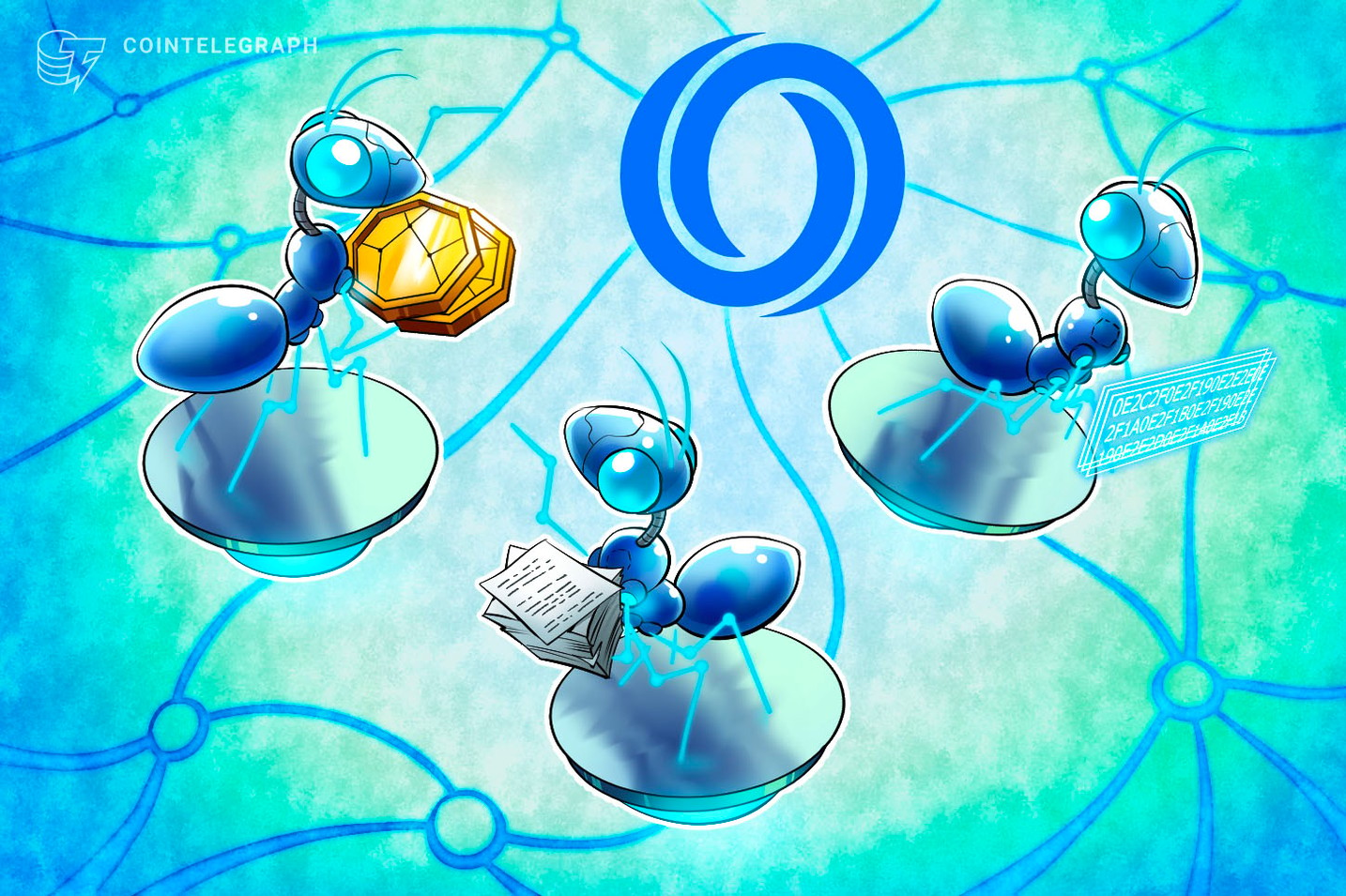A privacy-enabled blockchain platform says its goal is to build a responsible data economy and usher in a new era for this technology.
Oasis Protocol says it brings privacy and scalability to DeFi — ensuring that this new approach to finance can expand beyond early adopters to reach the mass market.
Controlling privacy
Support for confidential smart contracts is a key differentiator of the Oasis Network. The contracts play an important role in preserving privacy by allowing a trustless decentralized blockchain without having to make that smart contract’s data public. This leaves the network able to solve emerging problems in the DeFi space like front-running and market manipulation while also making advances in the tokenization of data assets.
Tokenized data can also solve some of the burning issues that exist in today’s online world, including how personal information is monetized. According to Oasis, the Parcel SDK allows the development of tradable data-backed tokens allowing everyday users to give explicit permission to apps that want to analyze their data — and control how sensitive information about them is consumed. This would allow novel ways of monetizing that personal data, from selling or trading it in a decentralized marketplace to “staking” it in exchange for rewards.
Concern about data privacy is not limited to personal information. Among other issues, mercenary traders “front-running” transactions by buying and selling based on orders locked in unvalidated Bitcoin blocks has plagued the broader DeFi ecosystem for a long time. By keeping transaction data and order books confidential, privacy-focused blockchains like Oasis Network can put an end to market exploits available on most layer-one blockchains.
Adding the ability to keep data private yet highly available and verifiable is good for more than just front-running. It encourages the expansion of DeFi from early adopters to a mainstream audience.
These confidential smart contracts would let lenders analyze sensitive data like bank records and social security numbers without exposing it to the rest of the network— allowing them to offer loans with more competitive rates and less risk. Privacy’s potential to overcome challenges emerging from the DeFi space are key to the Oasis Network’s ability to support the next generation of open finance.
Promoting scalability and flexibility
Another crucial tenet of Oasis Protocol’s infrastructure is its ParaTime scaling architecture, which unlocks fast transaction speeds and enables blockchains to boost their capacity quickly during times of high demand. This is achieved by separating execution from consensus — and according to developers, anyone has the ability to create their very own ParaTime to power the applications and use cases they’re building.
More insights from Oasis Protocol here
Zooming out to look at the ecosystem as a whole, this means that multiple ParaTimes can all process their transactions simultaneously. Crucially, one ParaTime which is contending with complex workloads won’t slow down another which focuses on simpler transactions. This is a refreshing change from blockchains where transactions end up in a queue and bottlenecks start to form. A classic case came in December 2017 when CryptoKitties ended up causing network congestion across the whole Ethereum network.
Building a community
Oasis was founded by Dawn Song, a leader in computer security and trustworthy artificial intelligence who serves as a professor at the University of California, Berkeley. Since launch, the project has been backed by the likes of Andreessen Horowitz, Accel and Binance Labs — and already, a number of developers are building on its network.
In January, a fully revamped grants program was launched — allowing developers who have ideas that will further the Oasis ecosystem to secure funding that kickstarts development. A total of $1.5 million in funding has been made available, with individual proposals given the chance to receive up to $50,000 in ROSE tokens.
Looking ahead, Oasis says one of its top priorities for 2021 concerns interoperability, meaning that it’s easier for ParaTimes to interact with each other, as well as other networks. Further enhancements will also be made to its range of strong privacy and confidentiality features.
New upgrades, more powerful DApps
Last month, Oasis Protocol unveiled two critical milestones in building its ecosystem, meaning that its infrastructure is fully ready for developers who want to create and deploy powerful applications.
A major mainnet upgrade was successfully executed — increasing security and performance while strengthening governance mechanisms and delivering a greater degree of decentralization. Its DApp development environment is also backwards compatible with Ethereum.
In a blog post setting out the changes, the project said: “Oasis has become the ideal environment for developers to build applications as they benefit from a whole host of features including transaction fees that are 99% lower than Ethereum’s as well as a much higher throughput — 1,000 transactions per second.”
Oasis Protocol added that years of privacy research has been distilled into an easy-to-use solution — the Parcel SDK kit — for developers who want to integrate powerful data privacy and governance features into existing apps. Backwards compatible with Ethereum, its Oasis-ETH ParaTime offers full support for Ethereum Virtual Machine and the Solidity smart contract language, as well as gas fees that are 99% lower and speed and scalability that’s substantially greater.
Learn more about Oasis Protocol
Disclaimer. Cointelegraph does not endorse any content or product on this page. While we aim at providing you all important information that we could obtain, readers should do their own research before taking any actions related to the company and carry full responsibility for their decisions, nor this article can be considered as investment advice.
